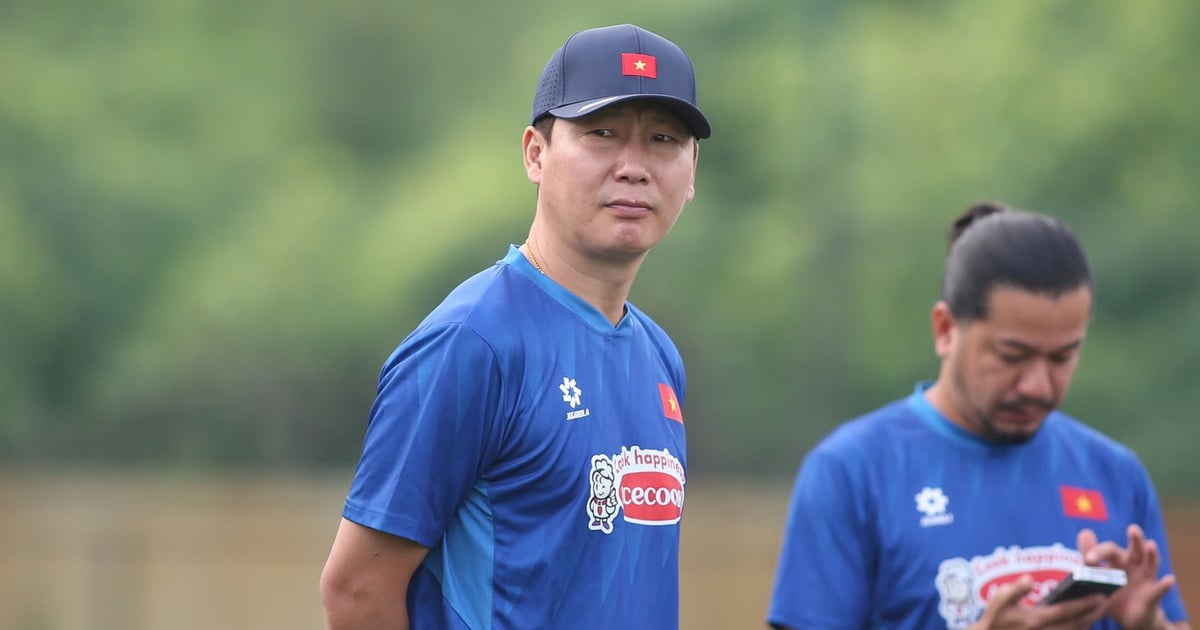Raising a question at the online consultation program on choosing a major for the future, with the topic "Increasing competition in the AI era with EQ and foreign languages" on the afternoon of August 14 at Thanh Nien Newspaper and online on Thanh Nien Newspaper's Facebook, YouTube, and TikTok platforms, a student expressed the above question. This is also a very topical issue in the context of the explosion of artificial intelligence (AI), which many people can easily abuse.
TELL A REAL, EMOTIONAL PERSONAL STORY
Master Lam Nguyen Bao, Director of Song Nguyen Education Company, said that the essay for studying abroad or applying for a scholarship is not a place for students to list their achievements, but requires them to tell a personal story that is genuine, emotional and has its own mark. Therefore, to avoid being cliché or depending on AI, the essay writer needs to turn to himself: What experiences have changed the way you think, feel, and act? This is when EQ - emotional intelligence - becomes the key to help you understand yourself more deeply: strengths, weaknesses, stumbling blocks and how you have grown from there. Thus, real contemplation is what makes the essay connect with the reader. Good foreign language skills help students express themselves clearly, naturally, and coherently, so that the story does not need to be colorful, but is still convincing.

Experts share tips to increase emotional intelligence in essay writing and studying
PHOTO: NHAT THINH
Don't parrot or parrot-like.
Master Tran Anh Khoa said that in the past, he used to learn by rote, especially in writing skills, he had to find and memorize good ideas to apply to the lesson. But then, he learned about a way of thinking in the Linear Thinking method: specify (concretize the problem).
"I once encountered the topic: "Although agriculture has developed in many places, many people are still hungry, why?". I am not familiar with agriculture, and I do not know why people are still hungry, so how should I write? Then, I applied the "concretization" thinking. I thought of Africa, the dry climate, the underdeveloped economy , farmers who cannot buy modern machinery... I developed my ideas and perspectives, from which the writing became more multidimensional," Master Khoa cited.
"In my role as an essay writing instructor for students, I always pay attention and want to look at that student's story to see how "special" it is. Because when applying for studying abroad or scholarships, everyone's profile is beautiful, but the essay needs something different. For example, a student tells the story of waiting for his mother in the rain every time she was late to pick him up, from there you lead to ambitions, dreams, and goals for the admissions board to notice your essay. In short, the formula for a good essay = honesty + deep emotions + clear language. And this is the result of practicing EQ and foreign languages early on," Master Bao concluded.
A I CAN WRITE FLOWERY SENTENCES, BUT HAS NO "ORIGINALITY"
Ms. Do Thi Ngoc Anh, Academic Manager at DOL English, who also won a 100% scholarship to study at the Russian government 's university level and a master's scholarship at the University of the West of England (UK), said that her secret to writing a scholarship essay is quite simple: telling her own story in a sincere and structured way. The difference between an essay written by a student and an essay written by an AI is that an AI can write flowery sentences, but an AI has no experience, no emotions, and no "personality".
"Instead of starting by searching for "huge" vocabulary, I started to calm down and ask myself core questions: "Why am I passionate about this field of study?", "What is my biggest failure, and what have I learned from it?". For example, I once failed in applying for a scholarship. I realized that if I continued to be afraid, I would continue to miss many other good opportunities ahead. And after having the most real "materials" from life, I used logical thinking - the foundation of Linear Thinking - to arrange them into a coherent story, with a beginning, an end, and a clear message", Master Ngoc Anh shared her experience.
DO YOU NEED A LOT OF "TRAUMA" TO WRITE A GOOD ESSAY?
So if you can't find a "turning point" or an important milestone in your life, can you write a good essay? Does life require "trauma" to write a good essay? In response to this, Master Tran Anh Khoa, Academic Director at DOL English, said that each candidate should be more flexible, find the highlights in small things, and use "associative" thinking and reading connections.
"I once read a book about essays that help students get into the world's top universities and found that there were essays about "small problems", but from a small story like "HS waiting for mother in the rain" as shared by Master Lam Nguyen Bao, you know how to associate, connect to family, to independence, to difference, the message sent to the admissions board, and you have created a special, different essay", said Master Anh Khoa.

Parents and students learn about study abroad information in different countries
Photo: Ngoc Long
GIVE YOUR ADVANTAGE BY DOING WHAT NO ONE CAN "COPY"
In the online consultation program, experts all said that in the era of AI explosion, it is not enough for students to only make their transcripts look good, ignoring factors such as experience, life skills, and EQ. Critical thinking and EQ are things that AI cannot copy. "EQ is a "soft weapon" that helps students not only study well but also live happily and successfully in the AI era," affirmed Master Lam Nguyen Bao.
According to Master Bao, students cannot practice EQ through books, but need to practice in real-life situations. For example, when students are independent, experience learning life, study abroad away from home, they have to share space, handle conflicts and disagreements with roommates, schoolmates, that is when EQ is activated. There will be small situations that help students understand themselves, know how to listen, regulate emotions and be independent. At the same time, when participating in extracurricular activities such as acting, presenting, teamwork, programs such as CFAW - "College for a Week"; "Journey to adulthood" summer camp, "Glocal Leadership Camp" summer camp, students are trained in communication skills, knowledge, improve their ability to use foreign languages and develop EQ - important skills for confidence and success in the AI era.

Students participate in summer camp, an activity to develop soft skills and EQ
Photo: SN
Master Do Thi Ngoc Anh also believes that learning and mastering a language helps students comprehensively practice both critical thinking and EQ. For example, when learning a foreign language, students are trained through continuously analyzing and evaluating information when reading or listening, instead of just passively absorbing it, thus practicing critical thinking. At the same time, when learning a foreign language, students must make an effort to understand the culture and perspectives of others, and must have perseverance (when facing and overcoming difficulties and discouragement during the learning process), thus students are practicing EQ - practicing empathy, the ability to overcome difficulties...
To help children learn foreign languages in a fun way and practice EQ naturally, not "mechanically", teachers can integrate them into activities and games. "To practice EQ, teachers let students act out plays and role-play characters to learn how to put themselves in other people's shoes. To sow the seeds of critical thinking, teachers ask open-ended questions "what if...?" about familiar stories to stimulate independent thinking", shared Master Ngoc Anh.
Source: https://thanhnien.vn/viet-bai-luan-don-tim-hoi-dong-tuyen-sinh-the-nao-trong-thoi-dai-ai-185250814202841927.htm



























![[Photo] An Phu intersection project connecting Ho Chi Minh City-Long Thanh-Dau Giay expressway behind schedule](https://vstatic.vietnam.vn/vietnam/resource/IMAGE/2025/8/21/1ad80e9dd8944150bb72e6c49ecc7e08)



































![[Photo] Politburo works with the Standing Committee of Hanoi Party Committee and Ho Chi Minh City Party Committee](https://vstatic.vietnam.vn/vietnam/resource/IMAGE/2025/8/21/4f3460337a6045e7847d50d38704355d)

































Comment (0)